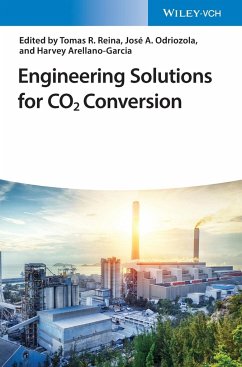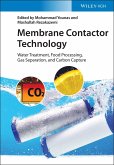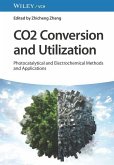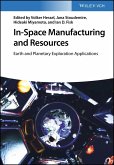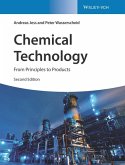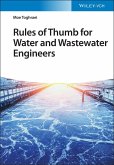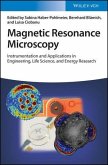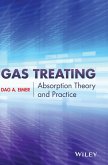A comprehensive guide that offers a review of the current technologies that tackle CO2 emissions
The race to reduce CO2 emissions continues to be an urgent global challenge. "Engineering Solutions for CO2 Conversion" offers a thorough guide to the most current technologies designed to mitigate CO2 emissions ranging from CO2 capture to CO2 utilization approaches. With contributions from an international panel representing a wide range of expertise, this book contains a multidisciplinary toolkit that covers the myriad aspects of CO2 conversion strategies. Comprehensive in scope, it explores the chemical, physical, engineering and economical facets of CO2 conversion.
"Engineering Solutions for CO2 Conversion" explores a broad range of topics including linking CFD and process simulations, membranes technologies for efficient CO2 capture-conversion, biogas sweetening technologies, plasma-assisted conversion of CO2, and much more.
This important resource:
_ Addresses a pressing concern of global environmental damage, caused by the greenhouse gases emissions from fossil fuels
_ Contains a review of the most current developments on the various aspects of CO2 capture and utilization strategies
_ Incldues information on chemical, physical, engineering and economical facets of CO2 capture and utilization
_ Offers in-depth insight into materials design, processing characterization, and computer modeling with respect to CO2 capture and conversion
Written for catalytic chemists, electrochemists, process engineers, chemical engineers, chemists in industry, photochemists, environmental chemists, theoretical chemists, environmental officers, "Engineering Solutions for CO2 Conversion" provides the most current and expert information on the many aspects and challenges of CO2 conversion.
The race to reduce CO2 emissions continues to be an urgent global challenge. "Engineering Solutions for CO2 Conversion" offers a thorough guide to the most current technologies designed to mitigate CO2 emissions ranging from CO2 capture to CO2 utilization approaches. With contributions from an international panel representing a wide range of expertise, this book contains a multidisciplinary toolkit that covers the myriad aspects of CO2 conversion strategies. Comprehensive in scope, it explores the chemical, physical, engineering and economical facets of CO2 conversion.
"Engineering Solutions for CO2 Conversion" explores a broad range of topics including linking CFD and process simulations, membranes technologies for efficient CO2 capture-conversion, biogas sweetening technologies, plasma-assisted conversion of CO2, and much more.
This important resource:
_ Addresses a pressing concern of global environmental damage, caused by the greenhouse gases emissions from fossil fuels
_ Contains a review of the most current developments on the various aspects of CO2 capture and utilization strategies
_ Incldues information on chemical, physical, engineering and economical facets of CO2 capture and utilization
_ Offers in-depth insight into materials design, processing characterization, and computer modeling with respect to CO2 capture and conversion
Written for catalytic chemists, electrochemists, process engineers, chemical engineers, chemists in industry, photochemists, environmental chemists, theoretical chemists, environmental officers, "Engineering Solutions for CO2 Conversion" provides the most current and expert information on the many aspects and challenges of CO2 conversion.

